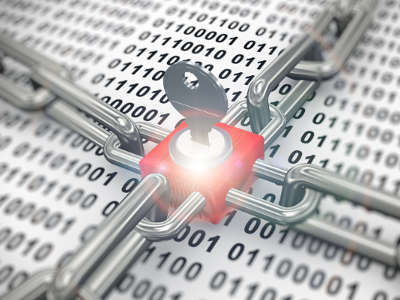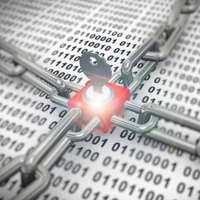Encryption is a hot topic in the media and amongst politicians at the moment; in the wake of the recent terrorist attacks in Britain and a European Parliament committee’s proposal to enforce encryption across all digital communication.
But what is encryption and why is it important in both your private and professional life? Claritas has pulled together a two-part blog series which will give you an overview of everything you need to know about encryption – from how it all started, to practical advice to ensure your information is protected.

What is Encryption?
Basically, encryption is a system that encodes a message or file so that it can only be read by certain people. Data is scrambled using a programme called an algorithm. A cryptographic key is applied and works like a password to protect the file. Once the data is encrypted, it looks like nonsense to anyone trying to access it! The only way to read it is by using the cryptographic key to decrypt, or unscramble, the data.
Encryption is used on many portals and websites for everything from protecting your emails from hackers, to guarding top secret government documents. Encryption is considered by many to be the only technology that can make the internet truly secure.
The History of Encryption
Although mechanical encryption is a modern invention, decoding messages goes back thousands of years. Many cultures used different methods to disguise their messages throughout history. As early as 1900 B.C., Egyptians used coded hieroglyphics to disguise their messages. The Hebrews and Greeks also had their own methods of cryptography.
Early mechanical encryption was introduced hundreds of years later, in 1455, by Leon Battista Alberti in the form of a polyalphabetic cipher machine. In short, these machines used a series of disks, each featuring letters of the alphabet, to create coded messages.
The Enigma machine, used by Nazi Germany is the most famous cipher machine of all time and was used to encrypt communication during World War II. The Allies managed to break Enigma which allowed them to listen in on communications, and outmanoeuvre them.
Modern Day Encryption
Encryption comes in many forms, with key size and strength generally being the biggest differences from one variety to the next. The original Data Encryption Standard (DES) algorithm, developed in the early 1970s, was cracked by hackers with relative ease. Following that, The National Institute of Standards and Technology held a competition in 1997 for a new cipher. They wanted an algorithm that was easy to implement, and resistant to both brute force attacks and other code breaking techniques. The Rijndael algorithm won, and became the basis for the Advanced Encryption Standard (AES). AES is still used today for many things including business records and top secret government data.
There are other widely used algorithms such as RSA, Triple DES and Twofish, all which have their own benefits but as cyber-attacks are constantly evolving, security specialists are continually having to develop new ways to keep data safe.
Why has encryption been in the news recently?
A European Parliament committee is proposing that end-to-end encryption be enforced on all forms of digital communication to protect sensitive personal data from hacking and government surveillance. The committee believes that EU citizens are entitled to personal privacy and this includes online communications.
This contradicts the UK Conservative Party’s recent election campaign that included a statement that tech firms should provide the authorities “access to information as required” to help combat online radicalisation. That has led to some confusion among tech industry leaders as to whether the government wants some kind of “backdoor”, a way to have end-to-end encryption disabled in specific cases. Many consider that this would be worse for computer security and citizen’s rights to personal privacy.
It’s a debate that is sure to rage on between all parties interested, and will continue to occupy news slots for the coming months. In part two of our encryption series we look at why encryption is important for your business and also why the internet is actually getting safer. Don’t miss it.
If you want to keep up with the latest news in I.T. why not follow our social media channels:



